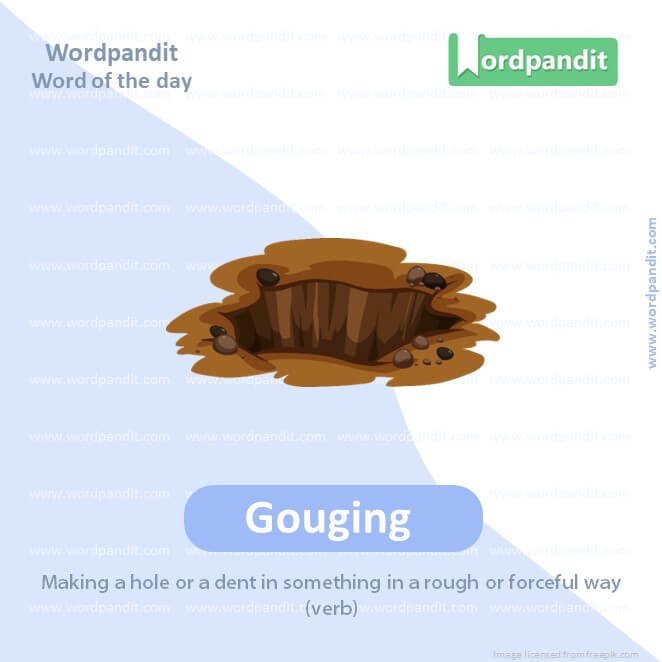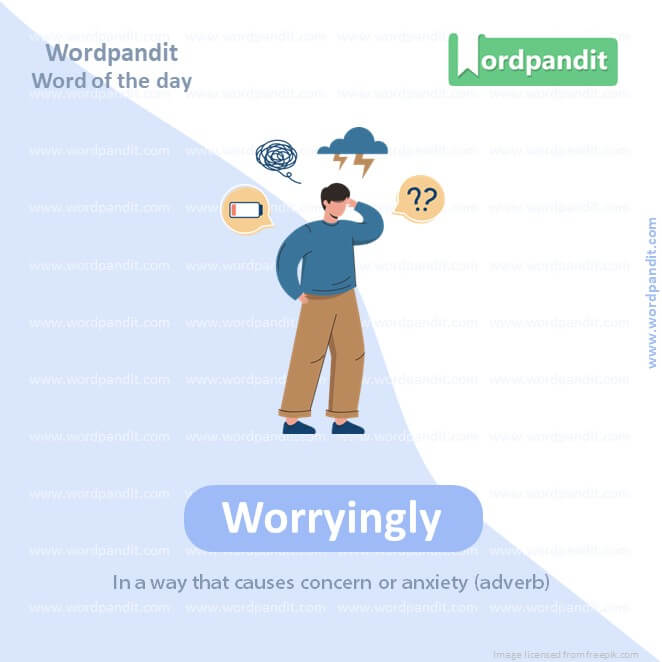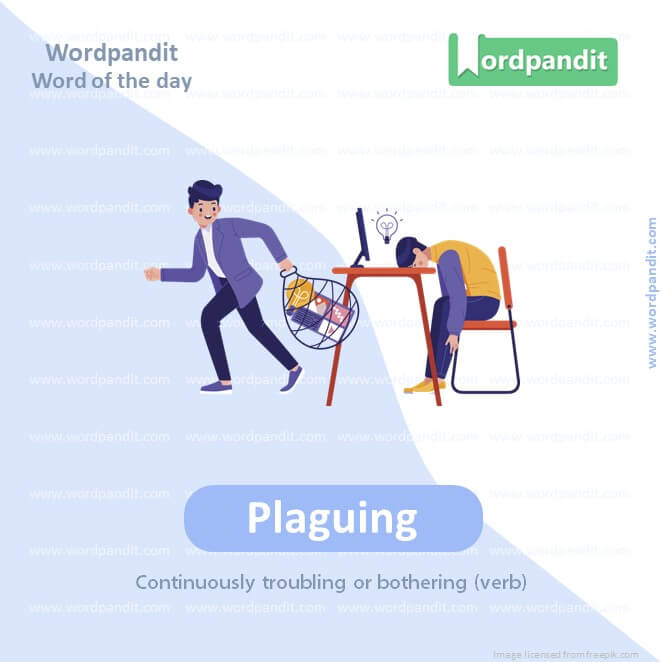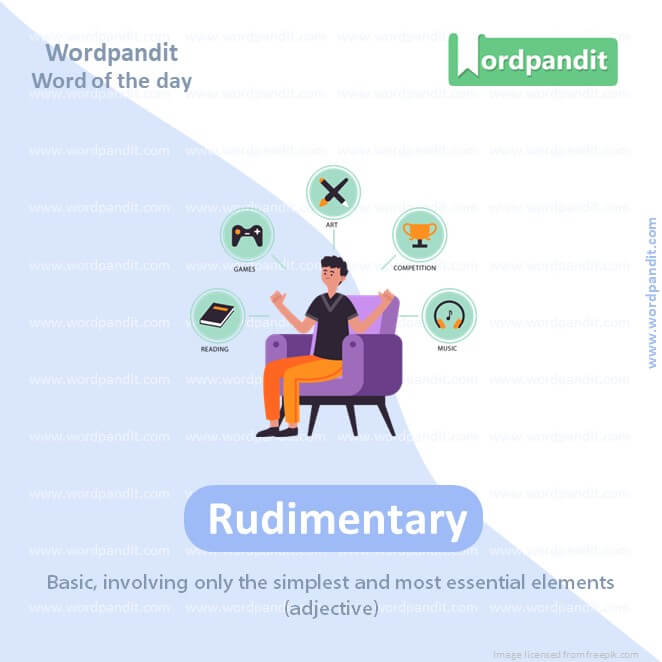Daily Vocabulary Words: List of Daily Used Words in Leading Indian Newspapers
Hi there. Welcome to this special section @ Wordpandit. Our endeavour here is straightforward: highlighting daily vocabulary words that you would come across in leading newspapers in the country. We have included the following newspapers in our selection:
• The Times of India
• The Economic Times
• Hindustan Times
• Mint
• Indian Express
We are putting in extensive work to develop your vocabulary. All you have to do is be regular with this section and check out this post daily. This is your repository of commonly used words; essentially, we are posting a list of daily used words. Hence, this has significant practical application as it teaches you words that are commonly used in leading publications mentioned above.
Visit the website daily to learn words from leading Indian newspapers.

WORD-1: Gouging
CONTEXT: Regulators argue that since price gouging distorts prices, several countries have anti-price gouging laws in place as a preventative measure.
SOURCE: Hindustan Times
EXPLANATORY PARAGRAPH: Imagine you have a piece of clay and you use your fingers to dig and carve into it deeply. That’s what “gouging” is—it’s making deep holes or cuts, usually with something sharp.
MEANING: Making a hole or a dent in something in a rough or forceful way
(verb).
PRONUNCIATION: GOW-jing
SYNONYMS: cutting, carving, slicing, incising, piercing
USAGE EXAMPLES:
1. The sculptor was gouging the marble to create intricate details.
2. The vandal was arrested for gouging the wooden benches in the park.
3. Gouging the surface of the metal made it easier to weld.
4. The knife was sharp enough to gouge through tough meat.

WORD-2: Worryingly
CONTEXT: The recurring cases of army fatalities to encounters in the recent past. Second, and equally worryingly, civilian deaths in alleged army custody, during operations to catch perpetrators after encounters.
SOURCE: Times of India
EXPLANATORY PARAGRAPH: When you feel scared or anxious because something might be wrong or dangerous, that’s when you’re feeling “worryingly.” It’s like a feeling of being really concerned about something.
MEANING: In a way that causes concern or anxiety (adverb).
PRONUNCIATION: WUH-ree-ing-lee
SYNONYMS: anxiously, concerningly, alarmingly, unsettlingly, disturbingly
USAGE EXAMPLES:
1. The doctor’s report was worryingly vague about the test results.
2. The dark clouds gathered worryingly in the sky before the storm.
3. Her behavior changed worryingly after the incident.
4. The news about the virus spread worryingly fast.

WORD-3: Plaguing
CONTEXT: This phenomenon is called “doomwashing”, an analogue to “ethicswashing” already plaguing AI policy.
SOURCE: Indian Express
EXPLANATORY PARAGRAPH: Imagine if you had a tiny invisible monster that kept bothering you and making things difficult. That’s what “plaguing” means—it’s like being bothered or troubled by something that just won’t go away.
MEANING: Continuously troubling or bothering (verb).
PRONUNCIATION: PLEY-ging
SYNONYMS: afflicting, tormenting, troubling, haunting, harassing
USAGE EXAMPLES:
1. The region was plagued by recurring droughts.
2. Financial problems were plaguing the company for months.
3. She felt like bad luck was plaguing her life.
4. The city was plagued by traffic congestion.
WORD-4: Enforceable
CONTEXT: Neither did these rules mention a word about the political-economic factors influenced by AI deployment, reducing the problem to one of safety testing, nor are self-regulations in any manner enforceable.
SOURCE: Indian Express
EXPLANATORY PARAGRAPH: Imagine if there were rules that everyone had to follow, and if they didn’t, they would get in trouble. That’s what “enforceable” means—it’s when rules or laws are in place and can be made sure that people follow them.
MEANING: Capable of being enforced or made to be obeyed (adjective).
PRONUNCIATION: en-FORS-uh-buhl
SYNONYMS: executable, binding, valid, implementable
USAGE EXAMPLES:
1. The contract was legally enforceable in case of a breach.
2. The new regulations were enforceable by fines for non-compliance.
3. The policy lacked enforceable measures to ensure compliance.
4. The court ruled that the agreement was not enforceable due to technicalities.
WORD-5: Encompassed
CONTEXT: In a parallel to the divine trinity of gods, Brahma, Vishnu, and Mahesh, symbolising birth, preservation, and creative destruction of the Universe, our holistic personality is encompassed by the triumvirate of intellectual, emotional, and spiritual dimensions, which are rather subtle and invisible, in addition to our physical component.
SOURCE: Times of India
EXPLANATORY PARAGRAPH: Imagine if you had a really big blanket that could cover everything around you. That’s what “encompassed” means—it’s when something includes or covers everything within its reach.
MEANING: Included or covered everything within its scope or range (verb).
PRONUNCIATION: en-KUHM-puhst
SYNONYMS: included, covered, embraced, surrounded, incorporated
USAGE EXAMPLES:
1. The book encompassed a wide range of topics related to history.
2. Her speech encompassed all the key points of the discussion.
3. The garden was encompassed by a tall hedge.
4. His responsibilities encompassed various aspects of the project.

WORD-6: Envisaged
CONTEXT: It is envisaged that the prices shall remain high for quite some time until the new crop hits the market again.
SOURCE: Hindustan Times
EXPLANATORY PARAGRAPH: Imagine if you could close your eyes and imagine exactly how something will be in the future, like what your room will look like after you clean it up. That’s what “envisaged” means—it’s like picturing something in your mind before it happens.
MEANING: Thought of or imagined something as a future possibility (verb).
PRONUNCIATION: en-VIZ-ijd
SYNONYMS: imagined, visualized, pictured, anticipated, foresaw
USAGE EXAMPLES:
1. The architect envisaged a modern skyscraper for the city skyline.
2. She envisaged a peaceful future for the war-torn region.
3. The inventor envisaged a world where technology would solve many problems.
4. The artist envisaged the scene before starting to paint.

WORD-7: Rudimentary
CONTEXT: In no small measure was the contribution of IAF, which flew in supplies, under fire, to a rudimentary and extremely short dirt strip – made by fearless locals who remained shoulder to shoulder with the army.
SOURCE: Times of India
EXPLANATORY PARAGRAPH: Imagine if you were just starting to learn something and only knew the basic, simple parts of it. That’s what “rudimentary” means—it’s when something is at a very basic or early stage of development.
MEANING: Basic, involving only the simplest and most essential elements
(adjective).
PRONUNCIATION: roo-duh-MEN-tuh-ree
SYNONYMS: basic, elementary, fundamental, primitive, initial
USAGE EXAMPLES:
1. His knowledge of French was rudimentary, just enough to understand simple phrases.
2. The machine had only rudimentary functions compared to modern technology.
3. The early versions of the software had rudimentary features.
4. The child’s drawing showed a rudimentary understanding of shapes and colors.
WORD-8: Misconceived
CONTEXT: This, however, is a misconceived notion as research studies reveal that intelligence is a multidimensional construct, comprising linguistic, mathematical, spatial, kinaesthetic, musical, interpersonal, and naturalistic intelligences.
SOURCE: Times of India
EXPLANATORY PARAGRAPH: Imagine if you had an idea about something, but it turned out to be wrong or not quite right. That’s what “misconceived” means—it’s when you have an incorrect or mistaken idea about something.
MEANING: Based on a mistaken or wrong idea or understanding (adjective).
PRONUNCIATION: mis-kuhn-SEEVD
SYNONYMS: mistaken, misguided, incorrect, wrong, flawed
USAGE EXAMPLES:
1. The project failed due to a misconceived strategy.
2. His plan was misconceived from the beginning and led to problems.
3. The rumors about her were completely misconceived.
4. The book clarified many misconceived notions about the topic.
WORD-9: Stipulate
CONTEXT: The Essential Commodities Act needs to be amended to stipulate stiff penalties for individuals who hoard and then create artificial scarcity.
SOURCE: Hindustan Times
EXPLANATORY PARAGRAPH: Imagine if you and your friend made a deal and agreed on certain rules or conditions before starting to play a game. That’s what “stipulate” means—it’s when you specify or agree on something as a condition of a contract or agreement.
MEANING: Specify or agree to something as a condition of a contract or agreement (verb).
PRONUNCIATION: STIP-yuh-layt
SYNONYMS: specify, agree, require, demand, set forth
USAGE EXAMPLES:
1. The contract stipulates the terms of payment and delivery.
2. She agreed to the job offer but stipulated certain working conditions.
3. The rules stipulate that players must wear protective gear.
4. The agreement stipulated a deadline for completion.
WORD-10: Ambush
CONTEXT: From such a historic place of grit and determination comes the sad news of the loss of four jawans in a terrorist ambush.
SOURCE: Times of India
EXPLANATORY PARAGRAPH: Imagine if you were playing a game of hide-and-seek, and suddenly someone jumped out from behind a tree to surprise you—that’s what an “ambush” is. It’s when someone hides and then suddenly attacks or surprises others.
MEANING: A surprise attack by people lying in wait in a concealed position (noun).
PRONUNCIATION: AM-boosh
SYNONYMS: surprise attack, trap, ambushment, assault, raid
USAGE EXAMPLES:
1. The soldiers set up an ambush to catch the enemy by surprise.
2. The gang planned an ambush on the convoy carrying valuables.
3. The ambush resulted in several casualties on both sides.
4. They narrowly escaped an ambush while traveling through the forest.
Vocabulary Importance
In the realm of language learning, understanding ‘vocabulary importance’ is a fundamental concept. Words are the building blocks of language and a rich vocabulary fuels effective and persuasive communication. However, embracing ‘vocabulary importance’ involves more than just acknowledging its role – it requires you to integrate it into your learning strategy.
To truly grasp ‘vocabulary importance’, expose yourself to a variety of reading and listening activities. Whether it’s reading novels, engaging with podcasts, or watching films in your the profound impact of having a robust vocabulary arsenal and will illuminate the practical ‘vocabulary importance.’
Additionally, recognizing ‘vocabulary importance’ necessitates an active approach to vocabulary acquisition. Regularly dedicate time to learning new words. Use flashcards, word lists, language apps, or even set a ‘word of the day’ to maintain a steady flow of vocabulary learning.
Incorporating the learnt vocabulary into your speech and writing is non-negotiable when understanding ‘vocabulary importance’. Regular usage not only enhances vocabulary retention, but it also uncovers the magic of eloquent expression that a blossoming vocabulary can yield.
It’s also beneficial to lean on memory aids in recognizing ‘vocabulary importance’. Associating words with images, stories or personal anecdotes creates strong memory hooks, enhancing vocabulary recall and solidifying the understanding of ‘vocabulary importance’.
To sum it up, ‘vocabulary importance’ is not just a theory to be noted, but a mantra to be embraced in your language learning journey. Engage with a wide variety of resources, actively learn and use new words, and utilize effective recall techniques. As you uncover the depths of ‘vocabulary importance’, you’ll realize that every new word is a fresh shade on your language palette, painting your communication canvas with hues of eloquence, clarity, and confidence.













